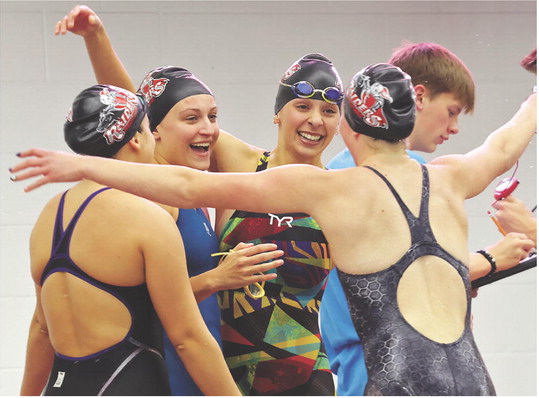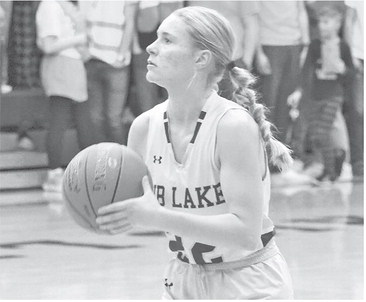others, it is one of ….
others, it is one of their first steps to healing.
“We have multiple displays. Our World War II display is a display that is more about education,” he said. “There are only a few veterans left from that war. Our Vietnam displays are about healing. It is part of the healing process for these veterans. I have had people come in and share more in that tent about their time in Vietnam than they have in the past 40 years. I have also had guys come in and start to go around and have to leave halfway through because it is just so overwhelming for them.”
There were many Vietnam veterans who came to the reenactment camp over the weekend, reminiscing, healing and occasionally sharing a couple of their stories about their time in Vietnam. One such veteran was Ron Hernandez of Necedah, who was a combat engineer in the 544th Engineer Battalion stationed near Bao Loc. During the war it was his job to use explosives to quickly clear land for helicopter landing zones, a job which took him on many UH-1H Huey rides.
“I took many a ride in one of these,” he said. “There would be a half mile to a quarter of a mile that you would have to walk to them, especially when we were being shot at .... oftentimes we would come to them and they would be hovering two feet off of the ground because it was dangerous to go on the ground. When you did, you got into trouble.”
Due to the nature of his job, Hernandez said he saw a lot of violence and had to learn quickly how to survive.
“We would use C-4, claymores and blowout caps out there,” he said. “If we came under too much fire, between the explosives and yourself, you don’t save the box, you save yourself.”
As he stood near the UH-1H Huey that was on display that day, Hernandez said while his job was dangerous, the duties that fell to a helicopter pilot were perhaps even more so. He could recall many times when those men would come under fire as they came to rescue their fellow soldiers, sometimes losing their own lives in the process.
“There were only a handful of times when a chopper was blown up before we got to it,” he said. “One time the chopper could not stay in place and wanted to keep moving so we grabbed onto the landing gear. I once saw a rocket go through the open doors of the chopper, they got lucky. I saw at least three times when a chopper got hit. I take my hat off to the pilots, they did a good job.”
Another veteran sharing his experiences in the Vietnam War was Randy Howland from Dousman, who served with the 70th Combat Engineers from 1968-69. He was a part of operations that occurred in Pleiku and Ban Be Thout during that year of service, building or blowing up whatever they were asked to.
“We built stuff and we blew up stuff,” he said. “We built bridges, had roads we would do minesweeps of to make sure they were clear. We built roadways, buildings and paved roads over there.”
As a combat engineer, Howland said he saw many areas of soldier life as he traveled around to help build temporary bases such as underground field hospitals. He would watch as helicopters taking off and landing would often get shot at by enemy forces and often found himself training new recruits on how to use the strange assortment of equipment they had out in the field.
“We built underground hospitals, they would bring in the wounded, get them patched up and take them out of there,” he said. “We got helicopters around every once in a while and when they’re around you, you tended to get shot at a lot ... Another part of the job was when we would get new guys to train them with the stuff. It was never the same stuff that you were taught with in training. You would have to teach them how to set up claymore mines and tell them what was going on because they never knew when they got there.”
While there were plenty of struggles, there were moments of humor that would also come up from time to time.
“Me and some guys rode shotgun one time on bulldozers,” recalled Howland. “We were taking a run at a big tree and a snake came down, it was a 17’2” python. I took out my .45 pistol and started shooting. The driver pulled out his rifle and started shooting. Pretty soon we could hear machine gun fire in the distance because everyone thought we were getting attacked. But we got the snake.”
Through the memories that were shared at Camp Victory over that weekend, Bogar said he hopes the coming generations will come to understand the importance of the Vietnam War, its effects on the world and learn the truth about the conflict. So many today, he said, have been led to believe several falsehoods about the war and history needs to be revised to speak the truth.
“Vietnam was more important than people give it credit for today,” he said. “We won Vietnam, everyone today believes that we lost the Vietnam War in open combat in 1975 and that just didn’t happen. We won it in 1973, our guys left not in defeat but in victory, but the powers that be couldn’t see it that way. Every veteran today is thanked because that generation of veterans said, ‘Never again.’ Every vet after them owes them that thanks.”




